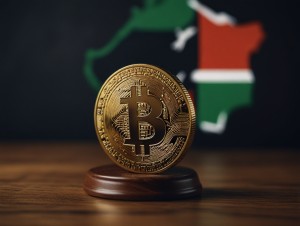Newly unsealed documents from the U.S. Department of Justice (DOJ) have cast a shadow of uncertainty over the future of cryptocurrency exchange giant Binance. The revelations suggest that Binance may be facing an uphill battle against intensified government oversight, potential litigation, and regulatory challenges.
DOJ’s expansive oversight
Former chief of the SEC Office of Internet Enforcement, John Reed Stark, has voiced concerns about the implications of the recently unsealed DOJ filings for Binance. These documents shed light on the extensive scrutiny that the DOJ is now exercising over the crypto exchange.
Breaking News: A Binance Double Whammy. 1) Newly Unsealed US DOJ Filings Could Mean the End of Binance; and 2) SEC Files Supplemental Pleading Against Binance, Strengthening the SEC Binance Lawsuit Exponentially
— John Reed Stark (@JohnReedStark) December 9, 2023
There’s been a flurry of newly released Binance-related filings… pic.twitter.com/igN2I9Y7cP
One key aspect highlighted by Stark is the authority granted to the DOJ monitor, tasked with ensuring Binance’s compliance. This monitor will be subject to the oversight of various divisions within the DOJ, including the Criminal Division, Money Laundering and Asset Recovery Sections, National Security Division, Counterintelligence and Export Control Section, and the U.S. Attorney’s Office for the Western District of Washington. This coordinated effort signifies the DOJ’s intent to leverage its full range of capabilities to tackle financial fraud within Binance.
Unprecedented access and interaction
Binance is now obligated to provide unrestricted access to the DOJ monitor, allowing for a comprehensive examination of its operations, documents, and resources. Furthermore, Binance must facilitate the monitor’s interactions with various entities associated with the exchange, including former employees, agents, consultants, and joint venture partners.
These requirements signal a level of oversight rarely seen in the cryptocurrency industry and raise questions about the extent of control that the DOJ is exerting over Binance’s affairs.
Stark points out that the increased scrutiny from the DOJ has bolstered ongoing litigation against Binance. Notably, the U.S. Securities and Exchange Commission (SEC) has integrated facts from the DOJ’s plea agreement into its enforcement action against the exchange.
In a recent filing, the SEC urged the federal court overseeing the case against Binance to consider the admissions made by Binance in the DOJ settlement. This move by the SEC implies that it is seeking the judge’s acknowledgment of these facts as accurate without the need for formal evidence presentation.
Doubts over Binance’s transformation
Stark expresses skepticism regarding Binance’s ability to swiftly transform into a conventional, law-abiding, transparent, and government-friendly business entity. Surviving an audit by the SEC is already a formidable challenge, but the prospect of enduring audits conducted by both the Department of Justice and the Financial Crimes Enforcement Network (FinCEN) appears to be a formidable hurdle for the exchange.
As Binance navigates these unprecedented challenges, its future remains uncertain. The intensified scrutiny from the DOJ and the SEC’s integration of DOJ settlement facts into its enforcement action creates a complex legal landscape for the exchange.
Binance, once known for its rapid growth and global dominance in the cryptocurrency space, now faces a pivotal moment in its history. The outcome of the pending litigation and the extent to which Binance can meet the stringent requirements imposed by government agencies will determine the path forward for the exchange.





